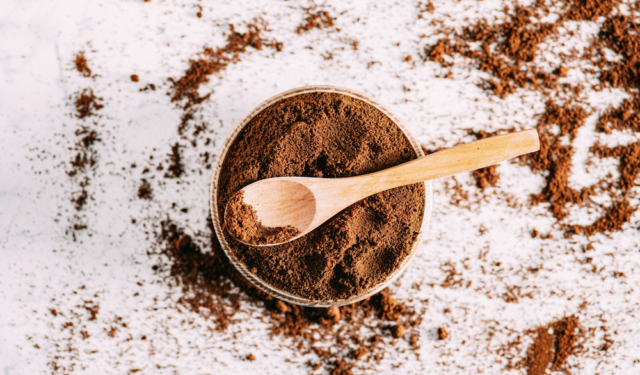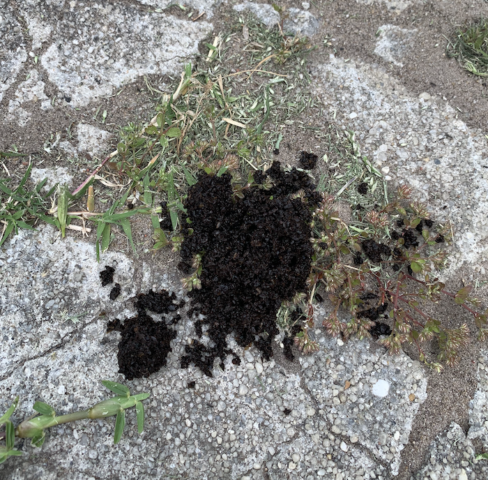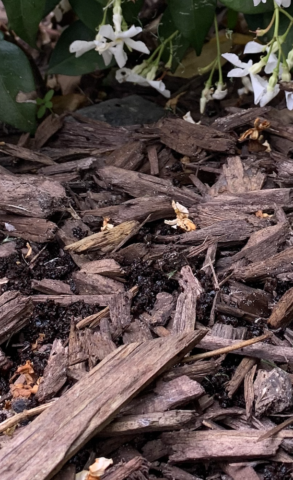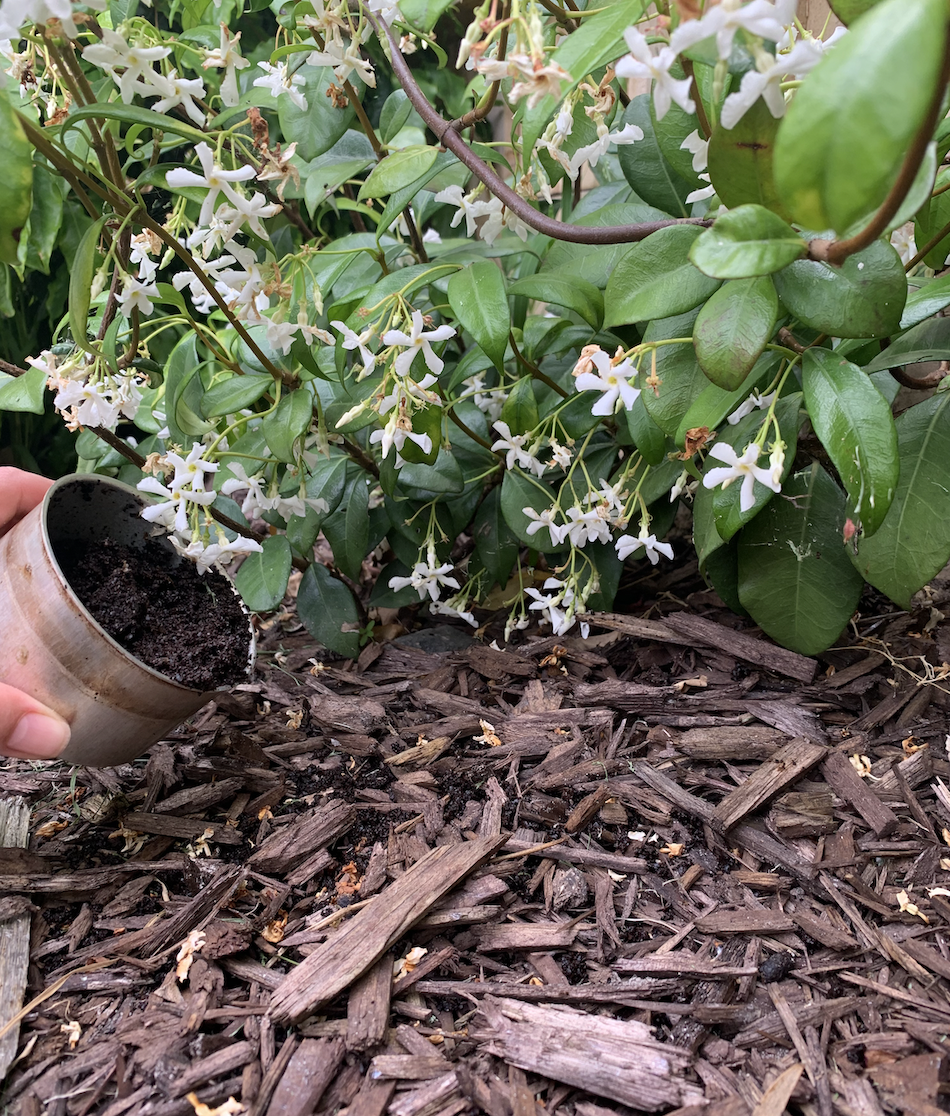Gardeners worldwide recommend coffee grounds for a range of gardening problems. From fertilizing to mulching to pest control, it seems there’s nothing a spoonful of used coffee grounds can’t do.
But does science support these claims? Let’s look a little closer.
There are lots gardening myths that have been passed down from generation to generation and often go unquestioned. This is true for many gardening ‘hacks’, like using eggshells, Epsom salt, and especially coffee grounds. While some of the claims made about these hacks have some truth to them, others are false.

Coffee grinds or coffee grounds
What are coffee grounds? As coffee bean roastery and cafe, we know a lot about coffee grounds. They’re made from grinding up coffee beans and are used in espresso machines, drip pots, and Moka pots to make coffee. But once the coffee is made, what do you do with the leftovers?
Some people suggest using them for things like gardening or crafts, but there are plenty of other ways to put them to good use! Let’s look into the idea of using them in your gardening regime.
Planting tomatoes with coffee grounds
Let’s find out when coffee grounds will help your tomato plants, and when they will harm them.
Coffee grounds contain 2% nitrogen, which is a vital nutrient for tomato plant growth. As the grounds decompose, they release this nutrient into the soil, making it available to the plant. This, therefore, means used coffee grounds should help the growth of a tomato plant.
If you’re thinking about replacing your regular fertilizer with coffee grounds, you may want to rethink your strategy. Slow-release fertilizers that are designed to improve plant growth have a much higher concentration of nutrients than the measly 2% found in coffee grounds.
The effect of coffee grounds on growth has also not been scientifically proven. While they may give tomato plants a small boost of nutrients in the long run, the concentration of those nutrients is unlikely to have a visible effect on the plants when compared to other organic fertilizers.
While some might claim that used coffee grounds can serve as a fine replacement for regular fertilizer, it’s worth testing this theory out for yourself before switching over entirely. Of course, if you find that your plants aren’t growing or are deficient in nutrients, forgo the coffee grounds in favour of a more traditional solution. One of the benefits of using coffee grounds is that it’s a more natural fertilizer, free from harmful chemicals that you would otherwise be putting on the food you consume.
The following plants thrive when coffee grounds are used as fertilizer:
+ cabbage
+ Roses
+ Begonias
+ Hibiscuses
+ carrots
+ radishes
+ hydrangeas
+ blueberries
+ lilies
+ azaleas
+ hollies
+ roses
+ rhododendrons
Plants that don’t like coffee grounds:
+ rosemary
+ alfalfa
+ black-eyed Susan
+ century plant
+ clovers
+ lavender
+ madagascar periwinkle
+ orchids
+ pothos
How often can I put coffee grounds on my plants?
You can fertilize houseplants every 7 to 10 days, but no more than that as there is a risk of over-acidification of the soil, and in general ‘overdoing it’. Add a cup of ground coffee to the compost once a week. Make sure the ground is dried before adding it to the compost to prevent mould formation.
Watering Plants with Coffee
Did you know that plants that love coffee grounds also respond well when watered with coffee liquid? However, it’s important to note that coffee is a pretty strong fertilizer, so this method of watering should only be done once a week maximum.
To prepare the mixture: boil the coffee and pour one and a half times as much water into the pot. Let the mixture cool before using it to water your plants!
Fresh Coffee Grounds in the Garden
Adding fresh coffee grounds to your garden’s soil is not recommended, as the increased humidity will promote the growth of mould spores. The coffee grounds must be dried first, which can be done by putting them in the oven. Once they are dried, store them in plastic bags for easy use.
How to use coffee grounds in the garden
To use coffee grounds as a fertilizer, sprinkle them thinly onto your soil or add them to your compost heap.
Despite their colour, for the purposes of composting, they’re a ‘green’, or nitrogen-rich organic material. Make sure to balance them with enough ‘browns’ – carbon-rich materials such as dried leaves, woody prunings or newspaper.
Your compost heap’s tiny munchers and gnawers will process and mix them effectively, so using coffee grounds in this way is widely accepted to be safe and beneficial.
Coffee Grounds and Dogs
WARNING: A word of warning – coffee grounds may not be as effective against pests as you might think, and they can be harmful to pets if ingested in large enough doses.
The amount of caffeine in used coffee grounds can vary, so it’s hard to say how much would be considered poisonous. If you have a pet that likes to sample anything that smells good, it’s best to avoid laying coffee grounds directly in the garden. Bury them in your compost heap instead.
Unused coffee grounds in your garden

Caffeine can actually stunt the growth of plants. Unused coffee grounds have more caffeine in them than used grounds.
Studies have shown that caffeine suppresses plant growth. Caffeine reduces germination rates in many plants by tying up the nitrogen in the soil.
So no, don’t use unused coffee grounds on your plants and gardens. If you want to do this, then pop it on your weeds, as unused coffee grounds would work better as a weed killer.
Where in the garden should I put used coffee grounds?

Sprinkle coffee grounds thinly onto your soil to fertilize, or add them to your compost heap.
Coffee grounds can also be used as mulch to prevent the soil from drying out, protect against pests, and improve soil quality.
You can mulch both houseplants and garden plants in the open ground by covering the soil around the plant’s trunk with well-dried coffee grounds and watering abundantly. Each watering will release nitrogen from the coffee grits and penetrate into the soil with water, soaking the plant’s root system and strengthening it, while also protecting it from pests.
Adding coffee grounds to garden soil
Used coffee grounds are increasingly recommended by professionals and gardeners as a sustainable way to improve your garden soil and provide nutrients to your plants.
Claims include improved soil structure, an ideal carbon to nitrogen ratio, improved fertility and provision of nitrogen.
**********
Looking for other uses for used coffee grounds? Check out our article on creative ways to repurpose used coffee grounds and filters.
Feeling inspired? If you live in or near Seaford, Melbourne, feel free to ask us for some of our old coffee grounds for your garden.




